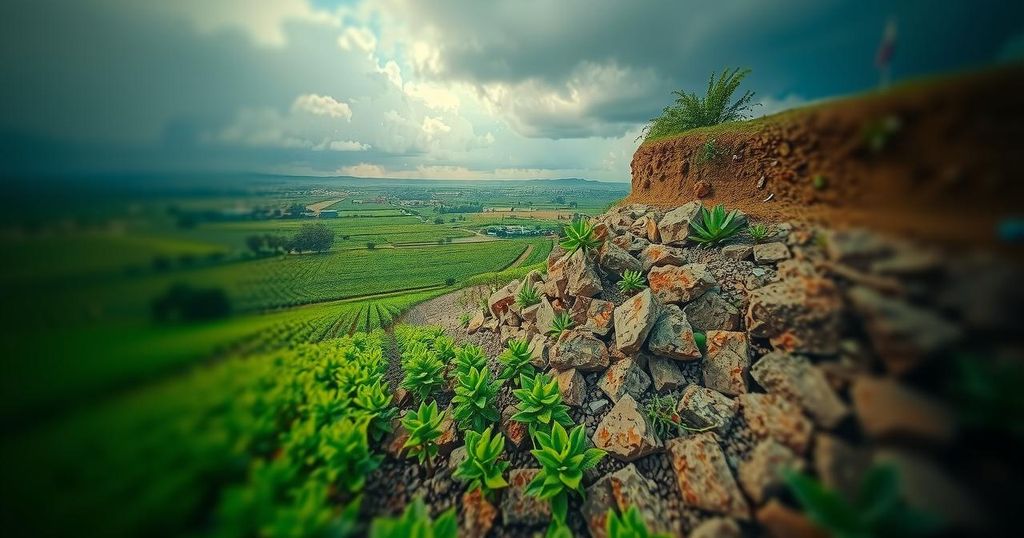Egypt’s agriculture is under threat from climate change, with predicted declines in crop yields, especially for essential crops. The government is taking steps to address these challenges through improved farming practices and irrigation techniques. Urgent adaptation measures are needed to protect food security and agricultural productivity in the face of climate variability.
Egypt faces significant threats to its agricultural sector and food security due to climate change, exacerbating existing vulnerabilities characterized by its arid climate and reliance on the Nile River. Recent discussions at the New Valley Agricultural Exhibition highlighted the adverse impacts of climate variability on farming practices in the region. As reported by various studies, Egypt’s agricultural productivity could diminish substantially, particularly for essential crops such as rice and maize, while adaptations in farming techniques, irrigation, and crop management are crucial for sustainability.
Egypt’s agriculture heavily relies on limited water resources primarily sourced from the Nile River, with changing climate conditions posing serious challenges. The country’s water availability has already fallen below international scarcity benchmarks, with projections indicating further declines in crop yields and overall food production efficiency. Adaptation measures, including improved irrigation techniques and the introduction of resilient crop varieties, are essential to ensure food security amidst rising climate risks.
In conclusion, Egypt’s agricultural sector stands at a crossroads, necessitating immediate adaptations due to the severe implications of climate change. By employing innovative farming strategies, enhancing irrigation efficiency, and cultivating climate-resilient crops, Egypt can bolster its food security and agricultural resilience against ongoing environmental challenges. Strategic investments and long-term planning are imperative for securing a sustainable agricultural future in the face of these threats.
Original Source: egyptianstreets.com







